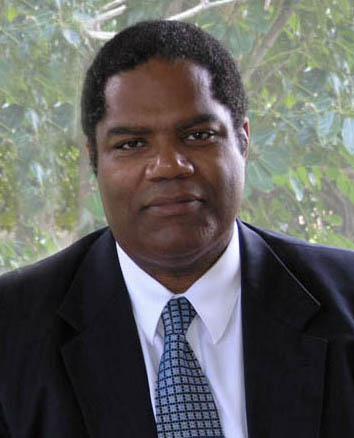|
 |
Insights
from a "Former" Bishop
Things I Learned by Doing, or by Trying to Do Them,
or by Seeing Others Do Themby
Marcus H. Martins
|
Bishoprics:
- Tijuca Ward, Rio de Janeiro Brazil Andaraí Stake
(1987-1990)
- BYU-Hawaii 7th Ward, BYU-Hawaii 1st Stake
(2001-2004)
Executive Secretary:
- Brasília Brazil Alvorada Stake (1982-1983)
- Tijuca Ward, Rio de Janeiro Brazil Andaraí Stake
(1986-1987)
|
Stake High Councils:
- Rio de Janeiro Brazil Andaraí Stake
(1981-1982)
- Rio de Janeiro Brazil Stake (1986-1987)
- Brigham Young University 6th Stake
(1991-1994)
- Rexburg Idaho Center Stake (1997-1999)
- Brigham Young University-Hawaii 1st Stake
(2000-2001)
Counselor (Mission):
- Marília Branch, Araçatuba District (1978)
- Ubatuba Branch, Taubaté District (1979)
|
On Inspiration & Counseling
1) A Bishop must use both his knees and his brain. But he
shouldn’t let the brain take precedence over the knees.
2) A bishop must have absolute faith, trust, and
confidence that God will speak to him. But this "celestial phone call" is paid
with the bishop’s brain and knees.
3) As important as pondering and prayer are, there comes a
time when action is required. When the time comes, a Bishop must act. If the
Bishop did his homework he need not fear the possibility of a mistake. Whenever
the Lord has something specific in his mind that he wants the Bishop to do, he
will tell the Bishop. If nothing seems to come by way of direct revelation, the
Bishop can find comfort in the idea that the Lord will have already blessed him
with sufficient wisdom to come to a decision that will be satisfactory in the
Lord's eyes.
4) After the Lord and the counselors in the Bishopric, the
stake president is the bishop’s consultant. Great blessings will come to the
lives of the ward members if the bishop and the stake president have a
relationship marked by mutual respect, true brotherhood, and wise counseling.
5) Make good use of the telephone or e-mail. When it comes
to resolving matters that require temporal resources, often good resources will
be known by another Bishop somewhere in the neighborhood. Tow-trucks, plumbers,
carpenters, etc.
6) A Bishop must let his two counselors work, and must
grant them "space" to think, act, and counsel the Bishop. The Lord will also
speak to them, so they will be able to give wise counsel to the Bishop–which
will allow the Bishop to be wiser than his own years. Counselors should be
allowed to grow in their callings, so one day they will become excellent bishops
in their own right.
On the Interaction with Members
7) A bishop is a friend, but should not be a "buddy."
Similar to the manner by which the Savior kept himself accessible but "apart" (see Talmage,
Jesus the Christ, page 356,) a bishop should also ensure that the dignity of his
sacred office is maintained while he interacts in a friendly manner with ward
members–especially the young.
8) The Bishop is the #1 teacher in a ward, and should
teach the members on a regular basis, reminding the members what covenants they
made and what the terms to those covenants were (Book of Mormon, Enos 1:22-23).
9) The disciplinary process often is heart-wrenching. A
Bishop must remember that he is the Lord's representative, but he is not the
Lord. A Bishop cannot forgive sins, nor can he punish anyone. All a Bishop can
do is use the keys of the Aaronic Priesthood and teach the doctrine of
repentance and baptism/sacrament, which will instill in the people a desire to
repent and be perfected in Christ (remember King Benjamin’s people - Book of
Mormon, Mosiah
5:2-6). Unrepented sins–not the disciplinary process–can destroy a person’s life
and future. When properly administered, the disciplinary process will heal and
save a person.
10) As much as the Bishop’s wife’s influence can bless the
lives of single-adult members in student wards, she should maintain some
"distance" from certain issues–and be far away from confessions and other
confidential matters. Problems will arise if a Bishop’s wife is seen as a "third
counselor in the Bishopric."
11) When the time comes, a Bishop should prepare ward
members–especially those in the ward council–for his release. For many of the
members this will be a very instructive experience. Specifically, the Bishop can
show that the ward continues to function normally–with new releases and
callings, interviews, council meetings, etc.–until his last day in office.
12) After his release, a former Bishop will give one of
his most memorable and powerful lessons on leadership by supporting his
successor–specifically by: (a) continuing active in the ward in whatever new
calling he receives; (b) refraining from meddling in people’s lives, including
those who will still come to seek counsel out of familiarity with the former
bishop; and (c) by not giving opinions to the new Bishop.
This web page was published only as a support for classroom
discussion.
For more information, contact Dr. Marcus Martins at:
martinsm@byuh.edu
